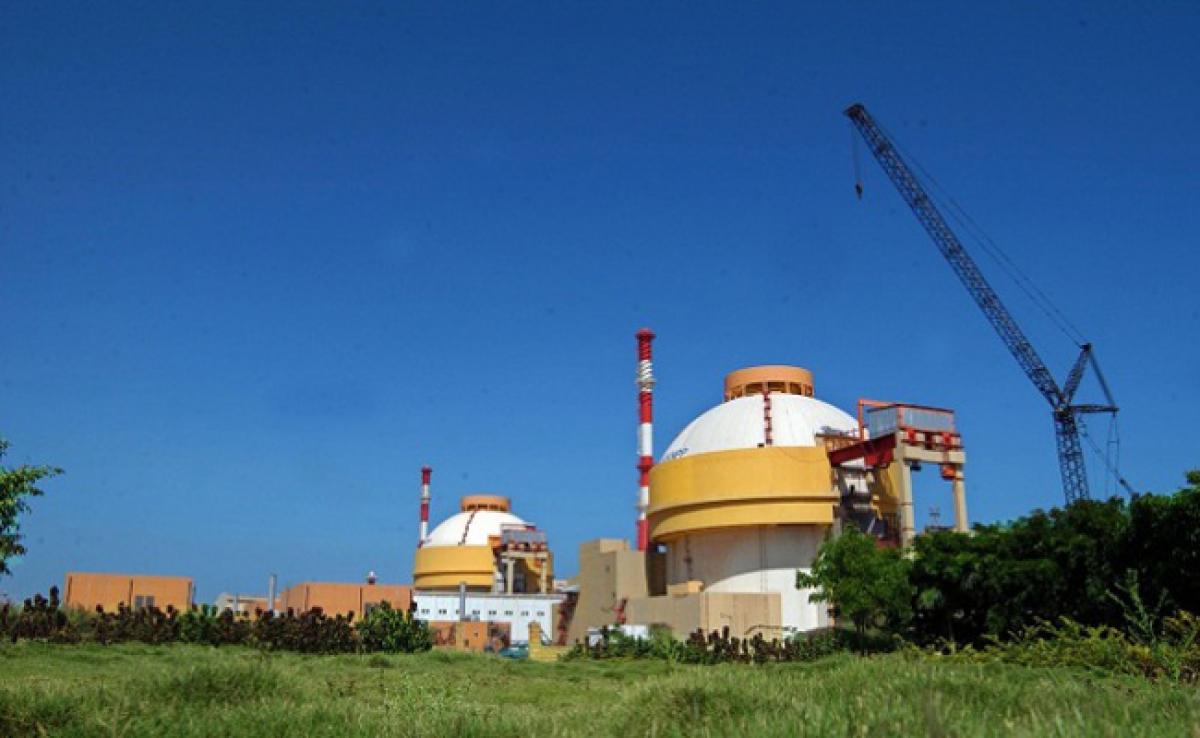Live
- Five-Year-Old Boy Dies After 55-Hour Rescue from Borewell in Rajasthan's Dausa
- Chaos in Parliament over Congress-George Soros link claims, BJP MP poses questions
- Bus Driver Arrested After Deadly Accident in Mumbai’s Kurla; 42 Injured
- Community lunch, a ritual to prevent drought in Adoni
- Rs 36.07 crore tribal products sold through TRIFED in FY24: Govt
- PM Modi to lay foundation stone for Ken-Betwa river linking project on Dec 25: MP CM
- 70 farmers trained as drone pilots in Anantapur dist
- AP Pensions: 500 Ineligible People Receive Pensions for Every 10,000
- South Korea's ruling party chief voices support for President Yoon's impeachment
- Defeat in Tirhut bypolls doesn't signify discontent among teachers: Bihar Education Minister
Just In

The nuclear power plant at Kudankulam in Tamil Nadu is resilient to Fukushima-like incidents, say its Russian builders, adding that post the incident in Japan, safety measures have been enhanced.
The nuclear power plant at Kudankulam in Tamil Nadu is resilient to Fukushima-like incidents, say its Russian builders, adding that post the incident in Japan, safety measures have been enhanced.
According to Vladimir A. Angelov, the Director for Projects in India for ASE, the Engineering and Construction Division of Rosatom, the Russian VVER reactor at Kudankulam can withstand threats like tsunamis and safety has been enhanced keeping post Fukushima concerns in mind.
"VVER power units are much more resilient against tsunamis and are much more stronger compared to Fukushima which was built on an American design," Angelov told IANS on the sidelines of Atomexpo here.
"Kudankulam takes into account the Fukushima event. We have enhanced certain technological parameters in units 3 and 4 taking into account lessons from Fukushima, specifically the seismic parameters," Angelov pointed out.
The four-unit 4,000 MW Kudankulam Nuclear Power Plant, being jointly built by India and Russia in Tirunelveli district, has faced much opposition from locals expressing fears of radiation.
The meltdown at the Fukushima in 2011, raised fresh questions over the safety of nuclear power plants, and the fall-outs in case of an accident.
Angelov said that both Russia and India took the initiative for enhancing safety parameters .
"The Indian side requested us to review the possibility of enhancing certain parameters and we also undertook the effort of analysing and enhancing them. So Units 3 and 4 are designed for a higher seismic, climatic and technical impact. This is an upgraded plant," he said.
Asked about the Units 1 and 2, the first of which is up and running and the second, which is likely go critical very soon, Angelov said: "We analysed the basic technical design of units 1 and 2 in terms of the lessons from Fukushima. We came to the conclusion that the units would have withstood the Fukushima incident. However, we are enforcing even stricter requirements."
He stressed that Units 1 and 2 are fully compliant with the requirements of post-Fukushima lessons.
Angelov added that these enhanced features will also be incorporated in Units 5 and 6 that are now being designed.
"We have started designing Units 5 and 6 taking into account the new events," he said.
Asked if there could be a disagreement between India and Russia on the liability issue in case there is an accident, Angelov pointed out India has signed the Vienna Convention which puts the liability on the operator.
"We won't have any claim to each other in case of nuclear liability because India has signed the Vienna Convention," he said.
Asked about the problems faced in the first unit, which saw a few shutdowns, Angelov said "adjustments have been made in the second unit so that similar incidents do not occur.
"We entered the stage of commissioning Unit 2 knowing the problems existing in Unit 1. So we are doing all the startups and adjustments in accordance with the schedule and being aware of and analysing the risks related to Unit 1," he said.
Asked about the shortcomings in the first unit, Angelov said: "This is a rather complicated issue because the scope of responsibility between the Russian party and the Indian party is divided within the unit. The contract envisages that the Russian side will provide a working documentation and will supply the equipment. We can provide consultancy services to our Indian colleagues."

© 2024 Hyderabad Media House Limited/The Hans India. All rights reserved. Powered by hocalwire.com







